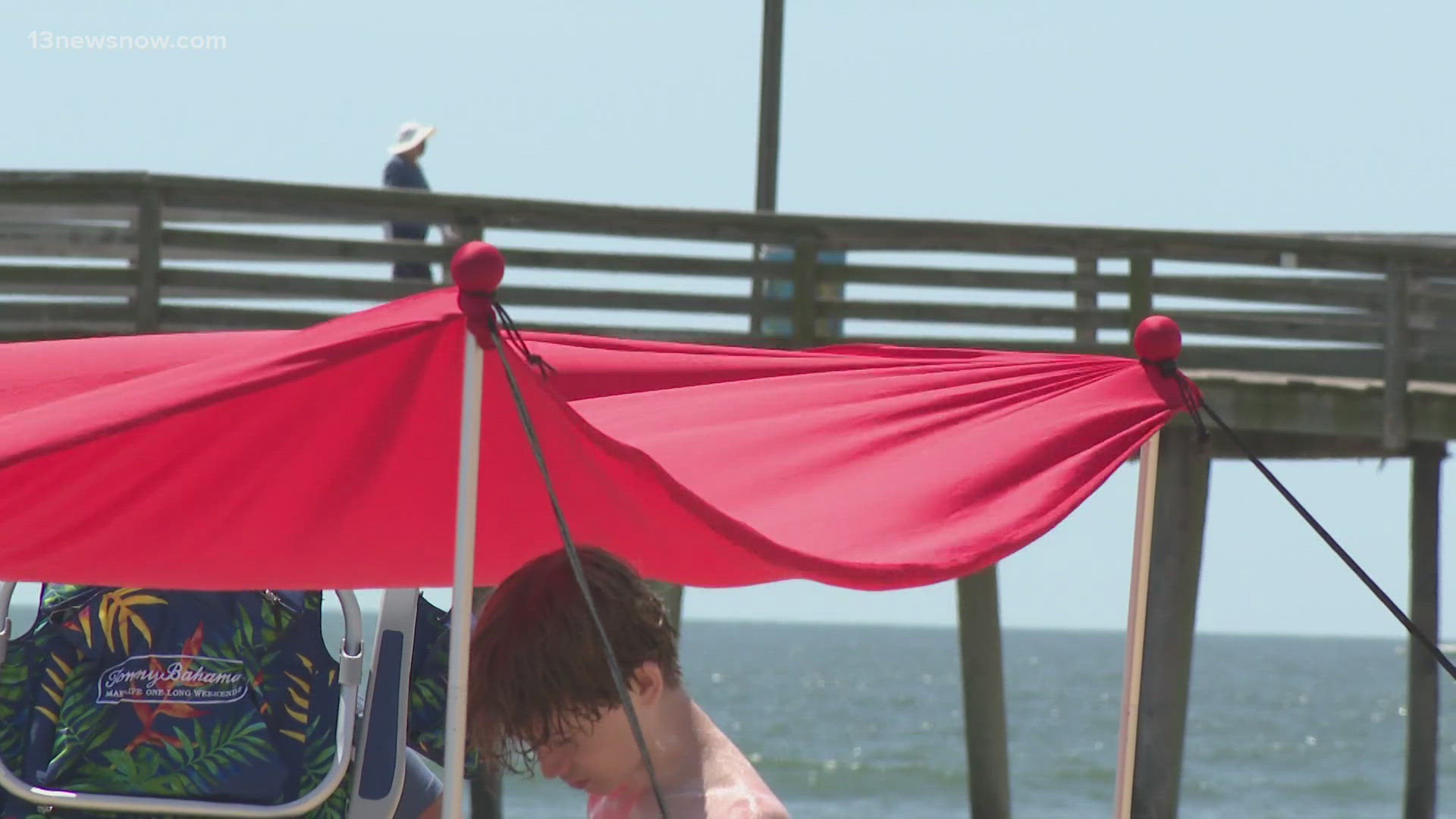NORFOLK, Va. —
With temperatures expected in the mid and upper 90s this weekend, sunbathing all day may not be the best idea. Medical experts at Sentra say long exposure to high temperatures can create heat casualty incidents.
"It starts as a heat rash, can be a sunburn, moves up to heat cramps, heat exhaustion, and then on to heat stroke, which is not a good thing to have,” Zack Martin, Emergency Room Nurse at Sentara said.
Vulnerable populations like infants and young children, people over 65 years old, people who are overweight, people who overexert during exercise or work and people who are physically ill, especially with heart disease and high blood pressure are at a greater risk of suffering a heat-related incident.
A heat dome across the eastern U.S. has Hampton Roads heating up. With temps expected in the 90s, the 13News Now weather team explains why it may feel hotter than it is.
Martin says signs to look out for when our bodies overheat include dizziness, fatigue, and fainting.
"Heat cramps, muscle pain, spasms, heavy sweating during exercise, and it moves on from there to heat exhaustion."
Martin says reducing activity or staying out of the heat can prevent a trip to the ER. But if a person is showing any signs, contact the hospital or medics as soon as possible.
RELATED: How to keep pets safe in the heat
The Virginia Department of Health also offers these tips to protect yourself from heat-related illness:
- Keep cool in an air-conditioned area. Take a cool shower or a bath. Spending at least two hours per day in air conditioning significantly reduces the risk of heat-related illnesses. When temperatures reach the upper 90s or above, a fan may not prevent heat-related illness.
- Stay indoors or find a cooling center in your area on an extremely hot day.
- Drink plenty of fluids: 2-4 glasses of cool fluids) each hour. To replace salt and minerals lost from sweating, drink fruit juice or a sports beverage during exercise or when you have to work outside. However, talk to your doctor first if you are on a fluid-restricted diet or medications, or on a low-salt diet.
- Avoid sunburn and wear light-colored clothing. Sunburn limits your body’s ability to keep itself cool and causes loss of body fluids. Use sunscreen with a SPF of 15 or greater, and apply it at least 20 minutes before going outside.
- Lighter-weight clothing that is loose-fitting and light-colored is more comfortable during extreme temperatures. Use a hat to keep the head cool.
- Give your body a break since extreme heat can be stressful on your body. Limit physical activity until your body adjusts to the heat.
- Never leave children or pets in cars. Temperatures inside a car can reach more than 150 degrees quickly, resulting in heat stroke and death.
- Use the “buddy system” if you are working outside. While working outside and you suffer a heat-related illness, you could become confused or could lose consciousness. Therefore, make sure someone else knows of your plans.
- Be sure to check on the elderly and neighbors without air conditioning.
More information about heat-related illnesses can be found on the Virginia Department of Health’s website.

